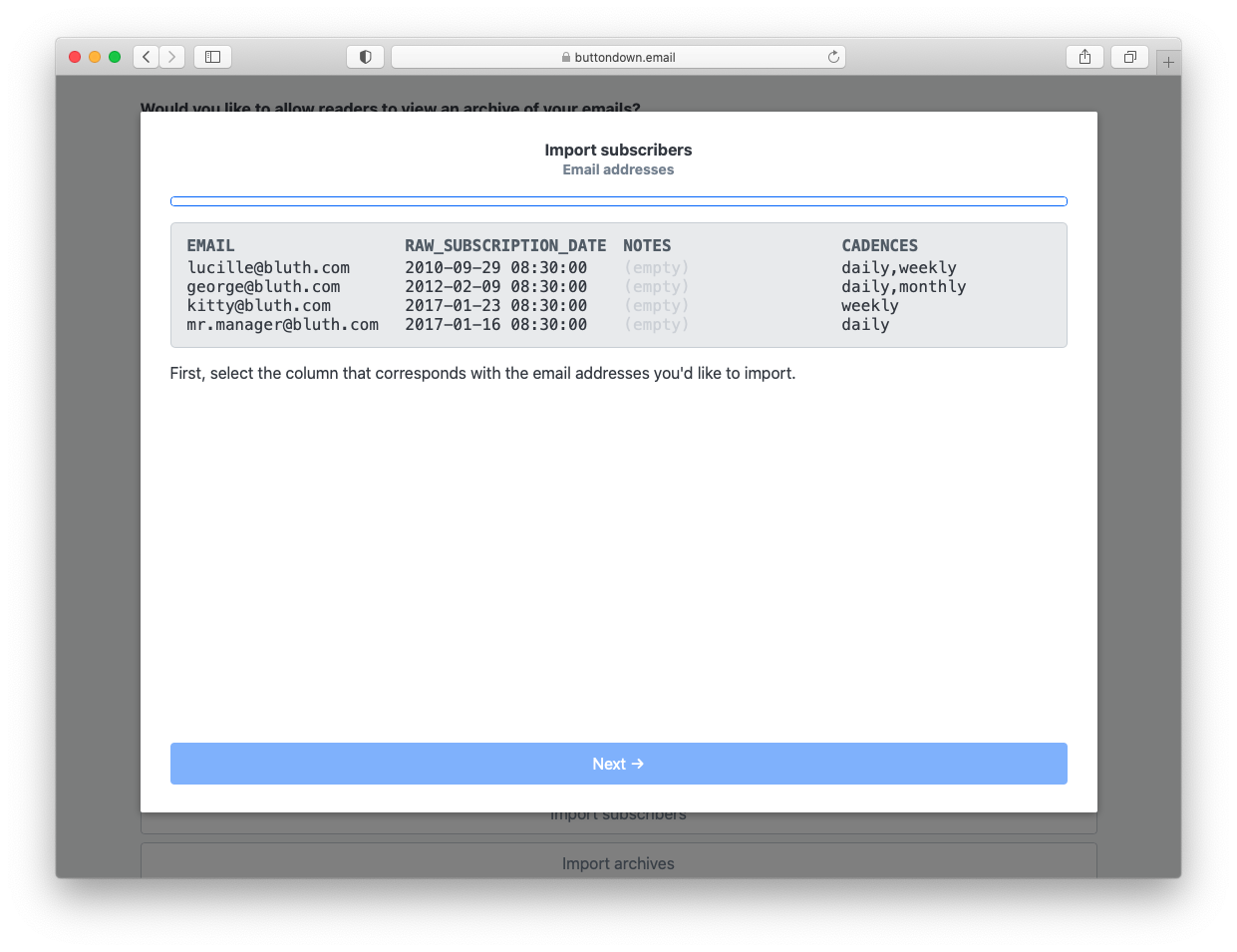A nicer subscriber importing experience

This is perhaps a strange and unhelpful blog post to write. You see, I have spent the past few weeks overhauling the subscriber import experience, and I am quite proud of this.
Why is this strange and unhelpful to write about? Because if you’re reading this blog you are either a Buttondown user already — and you have no need for importing — or you’re not a Buttondown user — and your decision to use Buttondown is likely not going to be swayed by its data onboarding capabilities.
But! Nonetheless!
One of my goals entering 2021 was to reduce the amount of time I — your humble administrator and proprietor — spent on onboarding tasks by automating them out of existence, to carve out more time for actual improvement of Buttondown as a product. One of the top “menial labor” tasks on this list was subscriber importing: Buttondown offers one-click importing for most of the classic other sources of CSVs-containing-emails, but these are fairly dumb mechanisms that don’t account for things like tags or metadata. It’s a black box: drop in this CSV and Buttondown will try very hard to get some stuff out of it.
This new importing experience though, is much better! You can trace the journey from the beginning from my Twitter thread, but it offers a lot of useful things: you can pull in metadata, you can pull in tags, you can override specific columns, and the general experience feels a little more polished than “here click this button”.
Subscriber importing != onboarding
Subscriber importing is not the whole story when it comes to a more seamless (for you and for me) onboarding experience, though. There are still a lot of things that are rough around the edges:
- Contact importing from Google/GitHub is flagged off and needs to be revamped.
- Archival importing is a little flaky around the edges and can use a fresh coat of paint.
- DNS onboarding is a whole can of worms, thanks to inconsistencies within domain name providers.
But the work here, both philosophically and pragmatically, is a useful start. A lot of the affordances I’ve built out with this new importing mechanisms carry on nicely to different parts of the onboarding process: the nice frontend multi-step modal will be reused in future onboarding revamps, and I think I’m getting to a point where I can more strongly reason about the “onboarding journey” (even as I hate myself for using that term.)
We’re not so far away from something that actually feels like a pleasant and fun onboarding process and not being thrown into a set of six different settings pages and eighteen different modals.
Or perhaps we are still far away from that point — but measurably and significantly less so than we were last month.
Either way. Thanks for reading, and as always let me know if you have any questions!